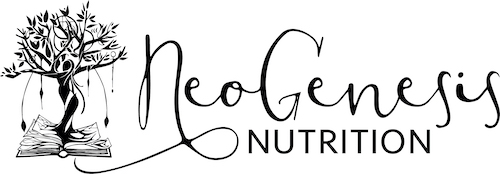ADHD doesn’t look the same for everyone.
Functional nutrition dives into each person’s unique biochemistry, aiming to ease symptoms by targeting food and lifestyle habits that foster brain health and maintain stable blood sugar levels. The result? A more balanced mood, improved focus, and a little extra pep in your step!
Let’s explore how simple dietary tweaks can lead to powerful changes!
Key Nutrition Tips to Support Focus and Mood
1. Balance Blood Sugar: Steady Energy, Steady Focus
Ever feel that mid-day crash or an energy dip after sugary snacks? That’s your blood sugar levels talking! Keeping them stable can prevent irritability, distractibility, and fatigue—common struggles for people with ADHD. Each meal should include a blend of protein, healthy fats, and complex carbs to keep blood sugar levels steady.
Prudent Pairing: Reach for snacks like apple slices with almond butter or Greek yogurt with berries. These combo snacks pack the right amount of protein, fat, and fiber to sustain energy without the dreaded crash.

2. Prioritize Healthy Fats: Fuel for the Brain
Omega-3 fatty acids are the superheroes of brain health! Studies show that omega-3s (found in wild-caught fish, flaxseeds, chia seeds, and walnuts) can enhance focus and may even reduce impulsivity for some individuals with ADHD.
Easy Addition: Add a daily serving of fatty fish like salmon, or sprinkle ground flaxseed or chia seed onto smoothies, oatmeal, or yogurt. It’s a brain-boosting delight that’s easy to slip into your day!
3. Minimize Processed Foods and Artificial Additives: Skip the Extras
Processed foods often contain artificial colors, preservatives, and sugars that may worsen ADHD symptoms. By focusing on whole foods and reducing processed items, you can keep your body (and brain) fueled with the good stuff.
Simple Swap: Start your day right by swapping sugary cereals for homemade oatmeal or yogurt topped with fresh fruit and nuts. Need more protein? Add a scoop of your favorite protein powder!
4. Lean Into the Snack Urge: Smart Snacking, Smarter Focus
The brain craves dopamine and stimulation, so snacking is often appealing to those with ADHD. The key is to channel that snacking into options that boost focus and mood rather than working against it. Choose snacks high in protein, fat, and fiber to keep energy stable.
Pleasantly Prepared: Pre-pack single-serving containers with nuts, berries, or veggie sticks. Having healthy snacks ready helps you avoid impulsive choices and guilt-free snacking!
5. Ensure Adequate Micronutrients: Small Nutrients, Big Impact
Nutrients like magnesium, zinc, vitamin D, and iron are essential for brain health and can ease ADHD symptoms. Leafy greens, seeds, eggs, and lean meats are all fantastic sources.
Supplement Sensibly: Check in with a healthcare provider or nutritionist to test for any deficiencies and consider supplementing, if needed.

Lifestyle Habits to Support Focus

Of course, nutrition is only one part of the picture! A few lifestyle changes can further boost focus and overall well-being.
- Get Moving: Regular physical activity (bonus points if it’s outdoors) naturally boosts dopamine and supports concentration.
- Practice Mindfulness: Meditation, deep breathing, and taking mindful breaks are effective for stress management and focus.
- Prioritize Quality Sleep: A good night’s rest is essential. Set a consistent sleep routine for a refreshed, ready-to-go brain each day.
Small changes in food and lifestyle can make a world of difference in managing ADHD. By setting intentional routines, we can enjoy improvements in mood, focus, and energy over time. And if you’re looking for a personalized plan, consider working with a functional nutritionist to explore what works best for you or a loved one with ADHD.


Schedule a Call

To Find to Find Your Focus

Let’s Heal Together!


Phone
253.507.5775
Admin@NeoGenesisNutrition.com
Address
2607 Bridgeport Way W Ste. 2M University Place, WA 98466
Disclaimer: The content of this blog is for informational purposes only and should not be considered medical advice. Always consult with a qualified healthcare professional before making any changes to your diet, lifestyle, or treatment plan.


